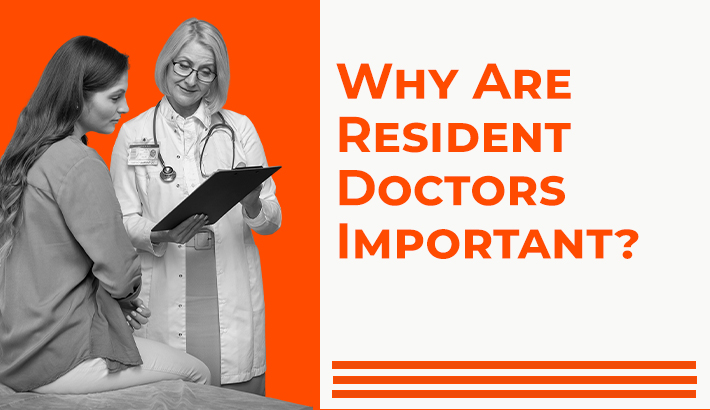The school where students take their medical courses substantially impacts their chances of success in the medical industry. To assist them in deciding their future course of action, all students now preparing for their class 12th board examinations should start researching the top medical collages in India. The NEET UG Exam results determine admission into private and public MBBS colleges in India.
How to Choose a Good Medical College?
It can be challenging for students to choose the medical institution that best suits their needs because there are over 1,100 recognized medical colleges. The infrastructure, specializations, cost structures, eligibility requirements, and various other crucial factors distinguish these top medical institutions from one another.
Choosing Good Medical College
AIIMS, Christian Medical College, Maulana Azad Medical College, and others are a List of best medical colleges in India. In India, medical schools charge an average of Rs. 7,000 per year for government-run institutions and up to Rs. 25 lakhs for private institutions.
Even though every student has their preference in choosing a medical college, some common factors can help MBBS aspirants and parents judge the medical college's quality. These factors answer the question How to choose a good medical college?
1. Age of the Medical College
Many parents use the age of medical college as one of their primary factors in ranking colleges situated in other states during All India Counselling. This also plays a key role in determining the quality of private medical colleges. One needs to make sure that there is no debarment history when it comes to private medical colleges.
When it comes to deemed university medical colleges, you should check the year of establishment of the medical college rather than the deemed university. It is obvious that deemed university status would be given only after attaining educational excellence, which takes a minimum of 25 years.
It takes a minimum of five years for medical colleges to be fully operational. This is why the Medical Council of India gives permission to medical colleges for the first few years and later converts their status to recognition after sufficient infrastructure and facility is set up.
2. Number of MBBS Seats
To evaluate the caliber of a medical college, one can also look at the overall number of MBBS seats available. The National Medical Commission (NMC) has regulations that outline the facilities, faculties, and resident doctors according to the available seats.
It is necessary to have 300 beds and a daily average patient flow of 300 to receive clearance for 150 MBBS seats. The best medical colleges with excellent facilities and infrastructure can be defined as those with 250 MBBS seats. More than 1200 beds and more than 2000 patients would be at these medical colleges daily.
3. Tuition Fees
The primary factor for the college section is tuition fees charged by medical colleges. Based on the types of medical college and chosen quota, tuition fees varies from Rs 1360 per year to Rs 50 lakhs/per year.
Government college tuition fees themselves vary from state to state. So candidates should rank colleges based on the tuition fees and pick the best ones based on other parameters such as location, patient flow, PG courses, etc.
4. PG Courses and Academic Details
How many specialist departments there are in a medical college depends on the number of PG courses offered there. The more departments, the better it is for clinical practice. Doctors who enroll in postgraduate programs are referred to as junior interns during the program and senior residents when it is over.
Both junior and senior resident doctors advise UG students regarding clinical practise. One of the most important ranking criteria for picking a specific medical institution is the availability of super-specialized and postgraduate courses. If you're considering enrolling in a postgraduate program, look at how many DM/MCH super-specialized courses the medical school offers.
5. Average Patient Flow
Medical Education mainly depends on clinical practice. Clinical Practice starts during the Anatomy class of Ist Year MBBS, so it is even more essential to pick colleges with high patient flow. Many private medical colleges in many states need better patient flow resulting in temporary debarment of medical colleges from conducting MBBS Courses.
6. Total Hospital Beds
Another vital factor that can be used to judge the quality of the clinical practice of medical college hospitals is the total number of In-patient beds in the hospital. More than 500 beds in the affiliated hospital are considered excellent medical colleges. You need to add beds in each department of the medical hospital to calculate the total beds.
7. Compulsory Rural Service
Medical colleges administered by the central government do not require their students to complete mandatory rural services. However, several state governments require them to sign a bond for a least one year. States differ in their length of time requirements.
A penalty of between Rs 5 lakh and Rs 40 lakh must be paid if you choose to forego performing your mandatory service. While AFMC requires seven years of service, ESI Medical Colleges only requires one year.
8. Internship Stipend
Even though it is not a significant factor when deciding college preference, many top-scoring candidates say that the internship stipend is the most significant advantage of joining central government-run medical colleges, apart from the no bond for compulsory service. After 4.5 years of study, you must do one year of internship training in the hospital. You will work in various departments, and you will get a stipend during that time.
9. College Location
Medical colleges in the city's heart attract many patients, giving exposure to a spectrum of diseases during the study and clinical clerkship. Students who study far away from their native should make sure that there is air connectivity if they choose smaller towns.
Another critical thing to consider in medical colleges in cities is the availability of PG coaching centers. Even though there are plenty of options available for online coaching if you are keen to go for offline coaching, choose colleges in big cities.
10. Hostel Accommodation Facilities
Applicants must also check for the hostel amenities and facilities on campus. Looking for accommodation outside the campus might be difficult for the students, and it might be a problem during night shifts.
Never make a hasty decision regarding "how to choose a medical school." When we rush through things, we frequently need to pay more attention to crucial information which you cannot afford.
Make sure you discuss everything with your parents and give them a voice. First of all, they are experienced and mature. They also want what is best for you, as they are paying for the entire procedure, first and foremost. Finally, you are highly advised to get professional assistance to avoid making poor mistakes that cannot be undone.




